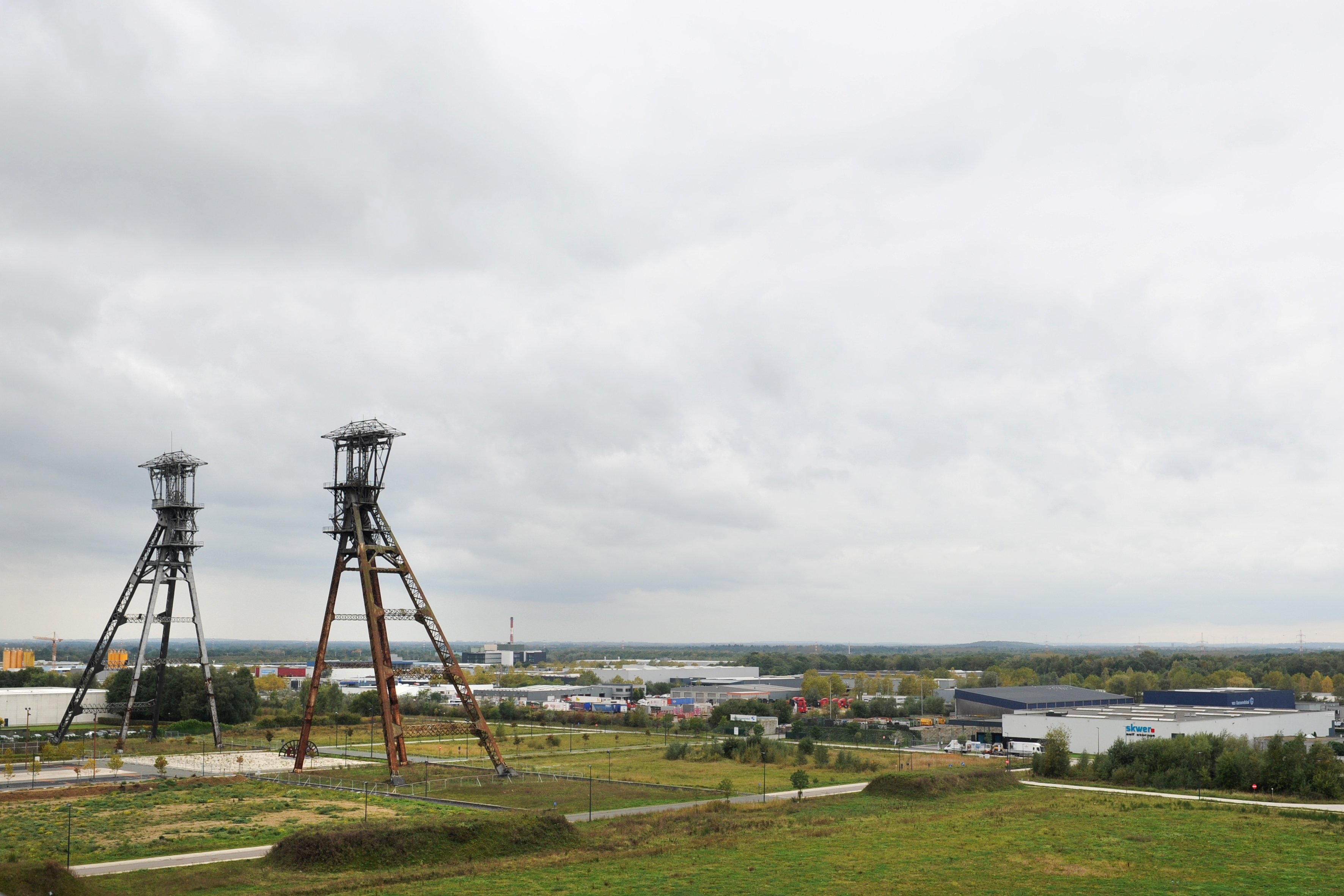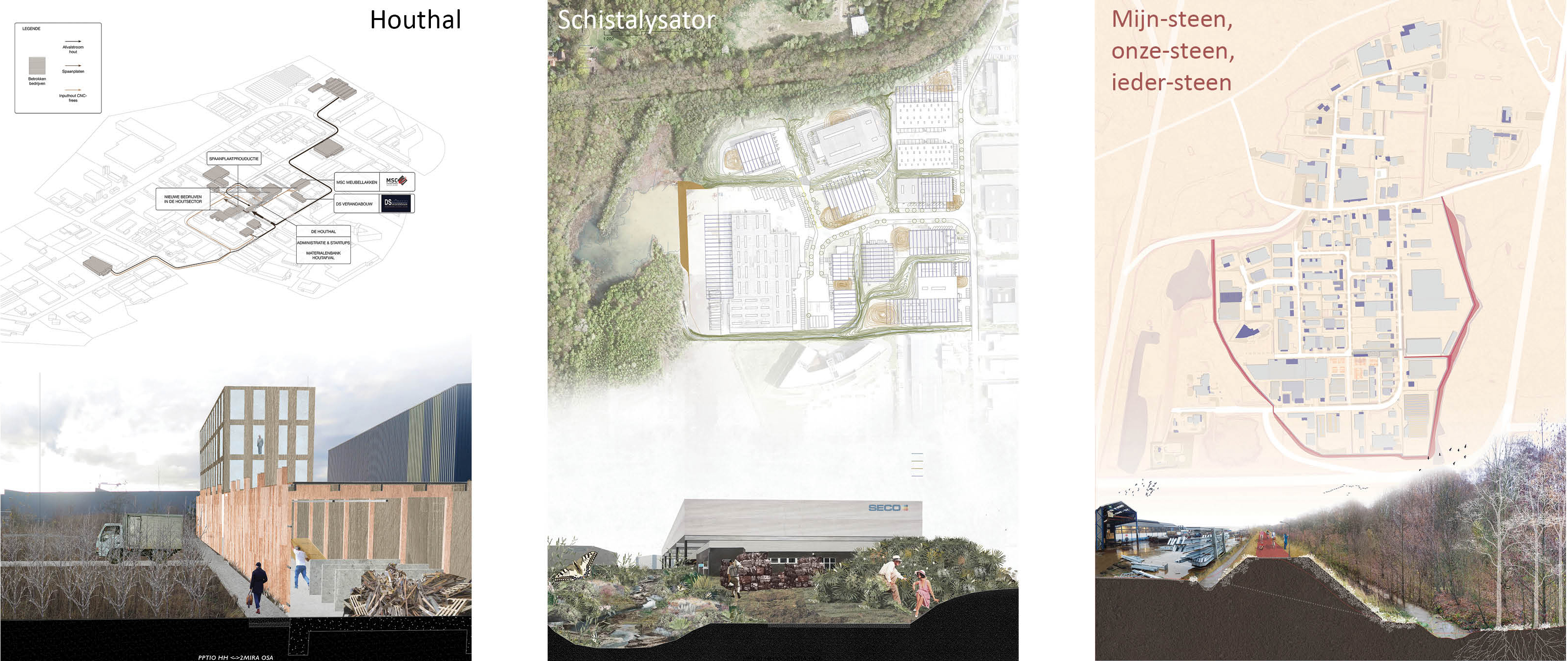CIRCULAR CENTRUM-ZUID - URBAN DESIGN EXPLORING ‘COLLECTIVES’ IN CIRCULAR ECONOMY TRANSITION
This case study revisits five imaginaries for Centrum-Zuid, an industry park in the municipality of Houthalen-Helchteren in Belgium’s northeastern region. Exploring alternative approaches to Centrum-Zuid’s circularity transformation, the imaginaries simultaneously reveal, work with and reimagine possible collectives. The explorations act as starting points to reflect on meanings of collectivity resulting from different sustainability framings for circularity.
The discussed imaginaries navigate along the circular economy spectrum, from circular businesses on an industry park to regenerating a cyclic resource landscape. As such they incorporate different positions regarding humankind-nature relationships navigating between human well-being and environmental concern (Hopwood 2005) and considering ‘new collectives’ (Huybrechts et al. in this book). They slowly build up to a shift in circular economy thinking, from what Escobar calls the coloniality of nature “seeing the products of the earth as the products of labor only, hence subordinating nature to human-driven markets” (Escobar 2008, p. 121) to acknowledging earth and its natural resources as the fundamental framework for a balanced co-existence.
The discussed imaginaries navigate along the circular economy spectrum, from circular businesses on an industry park to regenerating a cyclic resource landscape. As such they incorporate different positions regarding humankind-nature relationships navigating between human well-being and environmental concern (Hopwood 2005) and considering ‘new collectives’ (Huybrechts et al. in this book). They slowly build up to a shift in circular economy thinking, from what Escobar calls the coloniality of nature “seeing the products of the earth as the products of labor only, hence subordinating nature to human-driven markets” (Escobar 2008, p. 121) to acknowledging earth and its natural resources as the fundamental framework for a balanced co-existence.
| University | Onderzoeksgroep Stedenbouw en Architectuur (OSA) KU Leuven |
|
Project lead |
Julie Marin |
|
Partners |
This research is made possible with the support of the Research Foundation-Flanders (FWO). The author would like to thank the municipality of Houthalen-Helchteren, Departement Omgeving Vlaanderen, Regionaal Landschap Lage Kempen, OVAM and Vlaamse Bouwmeester for their contributions to the design research. Furthermore, thank you to all design studio collaborators Bruno De Meulder, Wim Wambecq, Kathleen De Beukelaer, Matteo Motti and Erik Van Daele, as well as the participants of the University of Leuven’s Public space and urban design studios in 2017 and Urban Landscape Design Workshop in Houthalen-Helchteren in 2016. |
|
Country/region |
Limburg |
|
Keywords |
Circular economy, urban design, circularity agendas |

.jpg)
